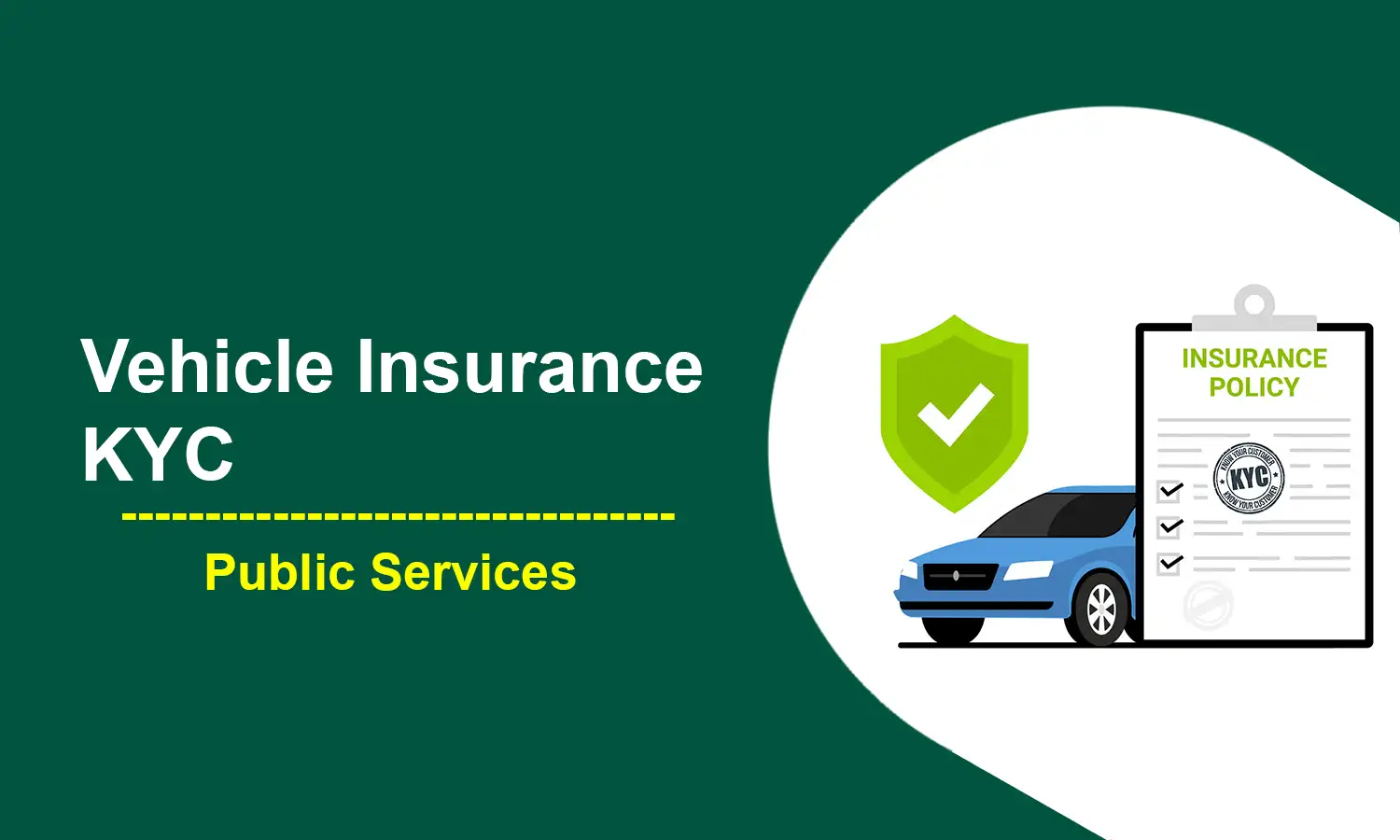Why Vehicle Insurance KYC is Important and how it helps prevent fraud
If you are a CSC VLE and offer vehicle insurance services, it is important to follow a stringent process for generating insurance certificates. As a part of this process, you must verify the customer’s PAN card and conduct Vehicle Insurance KYC using their PAN and Aadhaar card after paying for insurance but before issuing the insurance certificate. This is essential to ensure the address and identity verification of the vehicle owner for multiple security reasons in the future. Without completing Vehicle Insurance KYC, insurance certificates should not be generated. By implementing this measure, you can help to prevent fraudulent activities and safeguard the interests of your customers.
What is Vehicle Insurance KYC?
Vehicle Insurance KYC (Know Your Customer) is the process of verifying the identity and address of the vehicle owner before issuing the insurance certificate. It involves collecting and verifying the personal and financial details of the customer to ensure that they are authentic and accurate.
Why is Vehicle Insurance KYC so important?
Vehicle Insurance KYC is essential for ensuring the authenticity of the customer and preventing fraud. It helps to verify the identity and address of the vehicle owner, ensuring that the insurance policy is issued to the right person. KYC also helps to reduce the risk of fraudulent claims and ensures that the insurer has accurate information about the customer.
You May Love To Read
What documents are required for Vehicle Insurance KYC?
The documents required for Vehicle Insurance KYC are the customer’s PAN (Permanent Account Number) card and Aadhaar card. The PAN card is used to verify the customer’s identity, while the Aadhaar card is used to verify their address.
Benefits of Vehicle Insurance KYC in the Future
- Prevention of fraudulent activities: By verifying the customer’s PAN and Aadhaar card, insurers can ensure that the policy is being issued to the right person. This helps to prevent fraudulent activities such as identity theft and impersonation.
- Reduced risk of financial losses: KYC helps to mitigate the risk of financial losses for the insurer by ensuring that the policy is issued to the rightful owner of the vehicle. This reduces the chances of fraudulent claims and helps to improve the overall profitability of the insurer.
- Improved customer service and satisfaction: By verifying the customer’s identity, insurers can ensure that they are providing the right policy to the right person. This improves customer satisfaction and reduces the likelihood of disputes or complaints.
- Accurate information for premium calculation: KYC provides insurers with accurate information about the customer, including their address and identity. This helps insurers to calculate the premium accurately and reduces the chances of underwriting losses.
- Compliance with regulatory requirements: KYC is mandatory under the Prevention of Money Laundering Act (PMLA) and other regulatory requirements. By complying with these requirements, insurers can avoid penalties and legal action.
How to Complete Vehicle Insurance KYC?
- Verify the customer’s PAN card to ensure its validity and accuracy.
- Once you made the insurance payment, initiate the KYC process.
- Conduct KYC using one of the three methods:
A. Using Aadhaar details fetch: Provide the Aadhaar number, name, and date of birth to fetch the customer’s Aadhaar details.
B. Using PAN details fetch: Provide the PAN number, name, and date of birth to fetch the customer’s PAN details.
C. Upload the Aadhaar and PAN card: Upload the customer’s Aadhaar and PAN card image and fill in the basic details such as name and date of birth. - Verify the customer’s identity by matching the details with the provided Aadhaar and PAN card.
- If the customer’s identity is successfully verified, the insurance certificate is issued for the customer.
- If the KYC process fails, an insurance certificate is not issued until the customer’s identity is verified successfully.
FAQs
Is Vehicle Insurance KYC mandatory?
What happens if I don’t complete the Vehicle Insurance KYC process?
What if I don’t have a PAN card or an Aadhaar card?
The customer must have a PAN card and an Aadhaar card to complete the Vehicle Insurance KYC process. If they don’t have these documents, they should apply for them before applying for vehicle insurance.
Can I complete Vehicle Insurance KYC online?
Yes, the Vehicle Insurance KYC process can be completed online by uploading the required documents.
























